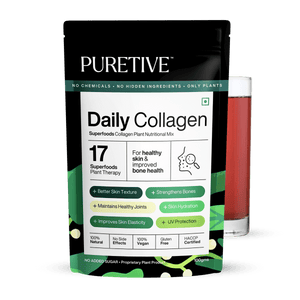Essential oils have become increasingly popular in households around the world for their aromatic qualities and potential health benefits. While these natural extracts can offer a range of advantages for humans, it's essential to be aware that not all scents are safe for our furry companions. In fact, some essential oil fragrances can pose serious risks.

Let’s discuss specific essential oil fragrances that can be harmful to pets, explore the reasons behind their dangers, discuss potential side effects, and provide safe alternatives to keep your beloved pets happy and healthy.
-
Tea Tree Oil: Although known for its antiseptic properties, tea tree oil is toxic to both dogs and cats. It contains compounds that can cause adverse reactions in pets, leading to symptoms such as drooling, lethargy, weakness, tremors, and even potential organ damage if ingested in large amounts.

-
Eucalyptus Oil: Eucalyptus oil is often found in products intended for respiratory support, but it can be hazardous for pets due to its high concentration of the compound eucalyptol. Ingestion or inhalation of eucalyptus oil can lead to vomiting, diarrhea, and difficulty breathing in pets.

-
Citrus Oils: Essential oils derived from citrus fruits, such as lemon, orange, and grapefruit, contain compounds like limonene and linalool. These compounds are toxic to pets and can cause gastrointestinal distress, skin irritations, and even central nervous system depression if pets are exposed to large quantities.

- Pine Oil: Pine oil, commonly found in cleaning products, can lead to adverse effects in pets. It can cause vomiting, lethargy, and skin irritation if ingested or applied to the skin.

Why Are They Harmful?
The primary reason certain essential oil fragrances are harmful to pets lies in the unique physiology of them. Pets, particularly cats and dogs, have a highly developed sense of smell and a different way of metabolizing substances compared to humans. Essential oils contain volatile organic compounds (VOCs), which can be absorbed through the skin, inhaled, or ingested.
The liver and kidneys of pets might not efficiently process these compounds, leading to an accumulation of toxins in their bodies. Cats, in particular, have a reduced ability to metabolize certain compounds found in essential oils, making them more susceptible to adverse effects. Additionally, pets often groom themselves by licking their fur, increasing the risk of ingestion.

General Side Effects and Symptoms
The side effects of exposure to harmful essential oil fragrances in pets can vary in severity. Common symptoms include:
- Gastrointestinal Issues: Vomiting, diarrhea, and abdominal discomfort are typical signs of ingestion or exposure to toxic essential oils.
- Respiratory Distress: Difficulty breathing, coughing, or wheezing may occur if pets inhale essential oil vapors.

- Skin Irritation: Topical application of certain oils can lead to skin redness, itching, and irritation.
- Central Nervous System Effects: Lethargy, weakness, tremors, and even depression of the central nervous system are possible with significant exposure.
-
Organ Damage: In severe cases, particularly with ingestion of large amounts, essential oils can lead to liver, kidney, or neurological damage.

Safe Alternatives
Fortunately, there are plenty of safe alternatives to enjoy pleasant fragrances while keeping your pets out of harm's way:
- Dilution: If you must use essential oils around pets, dilute them significantly with a carrier oil to reduce the concentration of the volatile compounds.
- Diffusing with Caution: If you use a diffuser, ensure it's in an area inaccessible to your pets. Opt for pet-safe essential oils like lavender, frankincense, or chamomile.

- Consult a Veterinarian: Always consult your veterinarian before introducing any new scents or products into your home, especially if you're unsure about their safety for your pets.
- Aromatherapy for Pets: Consider using specialized pet-friendly aromatherapy products, formulated with their safety in mind.










